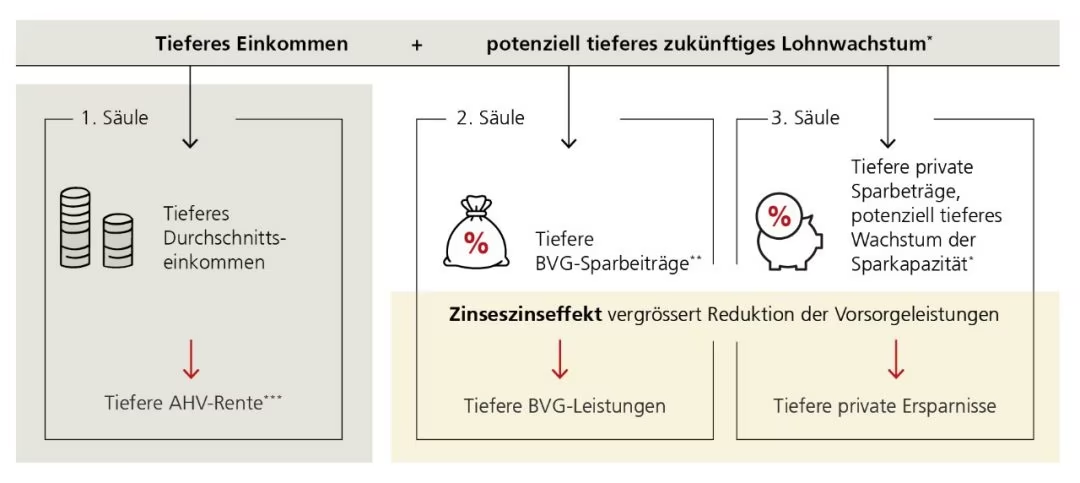Part-time work has an impact on pensions and AHV financing

The increasing popularity of part-time work in Switzerland raises important questions regarding the impact on personal pension provision and the financing of the AHV. An analysis by UBS shows that part-time work poses significant challenges both for individuals and for the three-pillar system.
Part-time work is on the rise in Switzerland, especially among women. The Federal Statistical Office (FSO) reports that around 30 per cent of single women without children will be working part-time in 2022, compared to only 15 per cent of men. This way of working not only affects individual income and pension benefits, but also the financing of the pay-as-you-go AHV system.
A study by UBS economists entitled “Part-time work: effects on pension provision” highlights the fact that part-time work leads to reduced pension benefits and reduced savings capacity. This particularly affects single people without children, whereby the resulting pension gap is often disproportionate to the reduction in workload. For couples, on the other hand, part-time work in conjunction with income-dependent childcare subsidies can have less dramatic effects.
The UBS study “AHV 2030 – Labour market scenarios for the fiscal sustainability of the AHV” shows that a change in labour market participation has a direct impact on the AHV funding gap. Increasing female labour market participation could slightly reduce this gap, while reduced male participation would widen the gap. A higher labour force participation of older workers would also have a positive effect.
Future developments in the labour market and social trends such as a better work-life balance or increased childcare by men could make further structural reforms to the AHV necessary. The UBS economists emphasise that changes in the labour market alone are not enough to close the AHV funding gap.